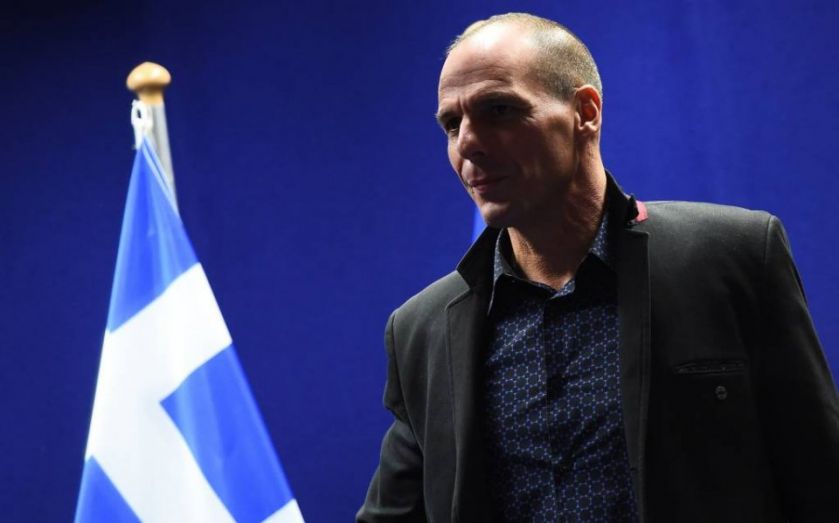Greek debt negotiations: What happens next?

After talks between Greece and Eurozone finance ministers collapsed on Monday, what now?
Greece has until the end of this week to agree a deal to extend its €172bn rescue programme, and is expected to request an extension to its bailout today, although within a different framework to the one offered by finance ministers on Monday.
Monday's talks had been billed as Greece’s last-chance saloon, although Jeroen Dijsselbloem, the Dutch head of the Europgroup, has insisted there is “ample time” to reach an agreement.
Still, Greece’s latest tranche of loans will mature on 28 February, whether or not the two sides have reached an agreement. So what happens next?
A compromise of some sort
Although some have pointed out that the Eurogroup’s differences are largely semantic (one man’s “bridging loan” is another man’s “bailout extension”), new prime minister Alexis Tsipras is adamant the Greek government will not agree to an extension of its current bailout deal. Indeed, new finance minister Yanis Varoufakis left talks on Monday because he had been presented with a draft statement to sign that discussed "makin[ing] the best use of the existing flexibility in the current programme".
With a deadline of this week to agree a deal, that puts new finance minister Yanis Varoufakis in an awkward position. The solution may lie in a deal proposed by EU monetary affairs commissioner Pierre Moscovici on Monday. The plan would give Greece four months of extra wiggle room in exchange for agreeing to conditions including paying its creditors in full and continuing to run a primary budget surplus.
The crucial difference is that Greece would be allowed to choose which reforms to agree to. It's going to be a tough sell for Greece's Eurozone partners, though.
Here's who Greece owes:

Capital controls?
Greece is heavily dependent on weekly injections of emergency liquidity assistance (ELA) from the ECB, which is due to decide on whether or not to continue the programme today (although suggestions are it will maintain the payments).
Still, Greeks are clearly worried: deposits have fallen more than €3bn in the past fortnight, following outflows of €12bn in January and €4bn in December.
If outflows carry on like this, the chances the ECB will have to up its ELA payments will increase. If it refuses, capital controls – such as daily restrictions on how much savers can withdraw – will be necessary to avoid a Cyprus-style financial crash.
The troika will stay in charge
The troika of the International Monetary Fund (IMF), European Central Bank (ECB) and European Commission (EC) effectively saved Greece back in 2011, but Tsipras insists the country paid too high a price for their assistance.
Throughout this process, Tsipras and Varoufakis have insisted on negotiating directly with Eurozone leaders, rather than troika representatives – the hope being that when their debt matures at the end of this month, the group wouldn’t end up insisting on lending it €7.2bn, as had been originally anticipated.
But the troika is unlikely to disappear. At the end of last month, Dijsselbloem emphasised the fact Greece’s creditors expect it to honour the terms of its bailout.
I realise the Greek people have gone through a lot. However, a lot of progress has been made and it is important not to lose that progress.
Greece’s fellow PIGS won’t have much sympathy
Back in 2010, Portugal, Ireland, Greece and Spain were the naughty kids of Europe – the ones at the back of the class who needed extra help with their maths. Since then, all four economies have gone through years of heavy austerity, and now the rest of the gang is starting to show encouraging signs, with Irish growth rising to 7.7 per cent in 2014, the fastest in the European Union.
So if Tsipras and Varoufakis had expected sympathy from its fellow PIGS, it’s going to be sorely disappointed. As commentator Fintan O’Toole noted earlier this week:
Ireland is not Greece. If government ministers and technocrats wore t-shirts, this slogan would be imprinted on those in charge of managing the crisis that hit Ireland in 2008.
A fall in popularity
Syriza, Tsipras and Varoufakis’ party, is currently in the government equivalent of the honeymoon period. Three weeks into his new job, Tsipras enjoys an approval rating of 74 per cent , while over the weekend 20,000 Greeks turned out for that rare thing: a pro-government rally.

Greek voters are emphatic in their views (Source: Getty)
But if Varoufakis is, as he hinted, willing to accept a compromise, Syriza’s popularity is likely to fall. It’s almost a certainty – so Tsipras and Varoufakis should enjoy their rock star statuses while they still can.